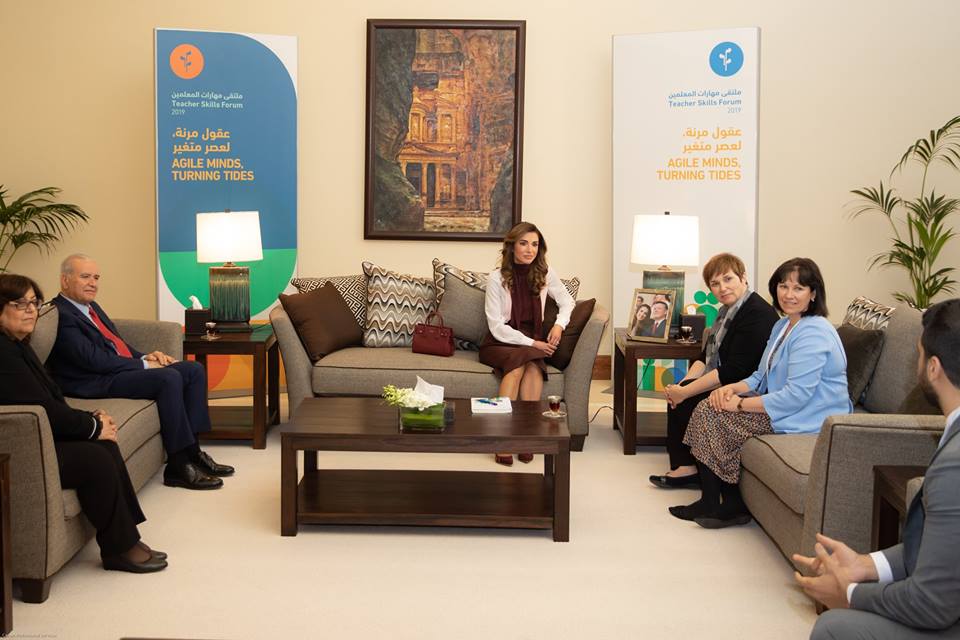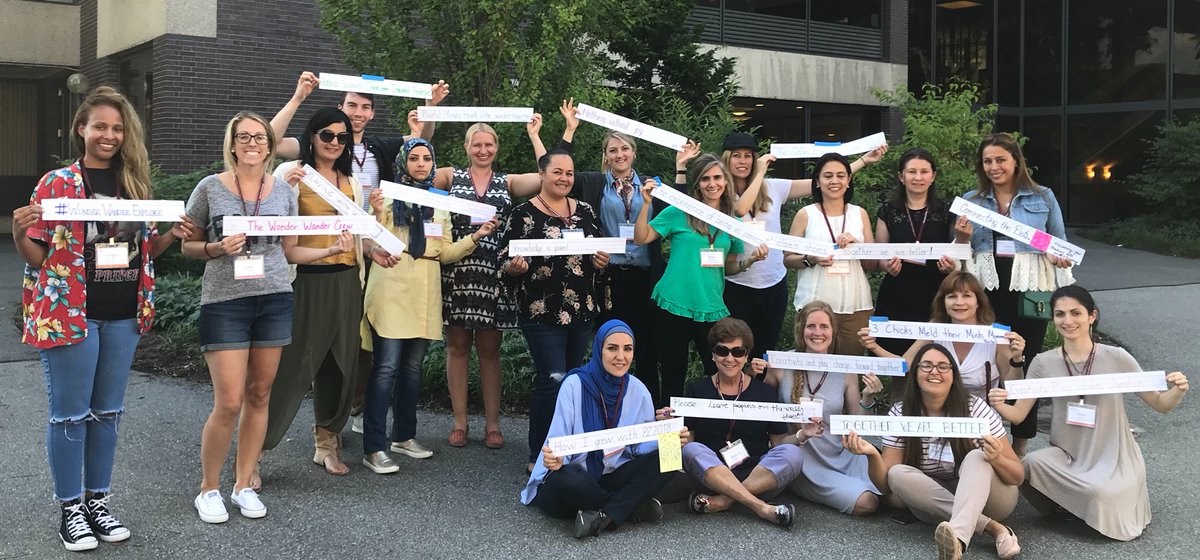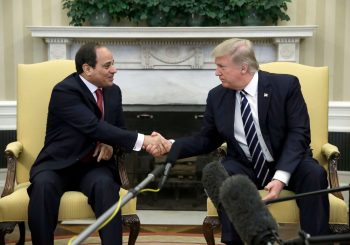Harvard Graduate School of Education (HGSE) boasts many success stories, and recently highlighted the work of the Middle East Professional Learning Initiative (MEPLI). The initiative, co-founded by Amin Marei two years ago, aims to develop educational structures already in place in the region, by working directly with educators and system-level leaders. By doing so, MEPLI aims to support students with the means to lead sustainable lives.
One of the initiative’s most notable programs is its Fellowship, which was piloted in Jordan, Palestine and Lebanon. It focuses on providing both formal and informal resources which broaden the tools available to teachers in the region, to better serve them. After the success of the first two Fellowship cohorts, MEPLI is already in discussions to extend their focus to other countries in the region.
In an interview with Egyptian Streets, Associate Director and co-founder of MEPLI, Amin Marei, shared further insight into the initiative’s goals and mission, its personal success stories and his personal connection to it.
Can you summarize the initiative and describe the importance of it? What drove you to start this initiative? How does it feel to watch it gain the recognition that it has?
The Middle East Professional Learning Initiative (MEPLI) at Harvard Graduate School of Education aims to support teacher educators and system-level leaders in developing practices, programs, and structures to help improve student opportunities to learn and achieve productive, sustainable lives. MEPLI builds on the existing wealth of educational knowledge in the region to support it in fulfilling its mission.
MEPLI was founded two years ago with the support of faculty, staff, and donors who believe in the power of education in nurturing a prosperous future for the Middle East. Since its inauguration, MEPLI’s impact has grown significantly with the support of our various stakeholders in the region. We still have a lot to achieve and even more to learn, and I hope we can continue to refine our strategy in a way that is driven by the need and the context of our educators.
How does it feel to be the youngest director at Harvard, and the first Egyptian to co-found an initiative at HGSE?
I feel lucky to have had the opportunity to co-found and lead an initiative that builds on my passion for education and is focused on the region that’s closest to my heart. As for being one of the youngest directors at Harvard, I believe that it provides me an additional incentive to keep learning from the expertise of my colleagues while at the same time adding to their knowledge and experience.
I also feel a responsibility to represent Egypt and the Middle East in a way that supports a more coherent and thoughtful narrative. As you may expect, the dominant perceptions about the region are driven by the US media’s portrayal of the region. Accordingly, it is a challenging task to change a narrative that is the result of decades of misrepresentation, but again that’s why I feel it is even more important to have an initiative like MEPLI, especially in these challenging times.

What aspects of your personal experiences and interests drove you to co-found the MEPLI? Considering you are from Egypt, how would you like to further your outreach from the MEPLI to Egypt?
I believe that education in its informal and formal settings is one of the main reasons for our existence and prosperity as a species. The way we learn and transfer knowledge from one generation to the other has been the major drive behind the progress of our civilization.
Encouraging children to learn and develop is both crucial for their own wellbeing and their ability to sustain productive lives.
Over the past decade, I’ve had several experiences that have fueled my passion for education. I’ve had the opportunity to co-found an NGO that focuses on civic education in Egypt, I’ve spent three years co-instructing a course at the American University in Cairo, and I had the opportunity to work as a consultant for several local and international NGOs. These experiences influenced my decision to pursue a Master’s degree at HGSE.
Thankfully, my presence at HGSE along with my previous experiences helped me convince HGSE’s faculty and staff with my credentials. One particular interest that drove the strategy of MEPLI as we were co-founding has been my belief in the power of learning communities and contextual knowledge. As someone who spent most of his life in the region, I have witnessed firsthand the wealth of social and human capital. I also knew how important it was to understand the context of every town, village or sometimes even street before you embark on a strategy that is reliant on your assumptions. Even though our strategy meant more work for us, it was the only way for us to pursue a thoughtful sustainable plan.
I hope that we would be able to support the education sector in Egypt in a way that supports the needs of the learners in Egypt. We are currently in discussions with members of the Ministry of Education in Egypt to ensure that our strategy in Egypt is relevant and sustainable.

One of the most notable programs offered by MEPLI is its Fellowship, can you expand on other programs offered?
We develop contextualized Arabic courses that are focused on education. We just completed the launch of our first Arabic course in March titled “Agile Thinking”. This course is focused on supporting teachers’ develop differentiated instruction techniques. For the first run, we had 55 educators from 5 different countries in the region. We also have three other courses that are under development and will be launched this year.
We have also provided various residential experiences in the region to support educators of various levels. These activities include workshops, institutes and consultation projects. We also developed Harvard’s first online learning platform in Arabic titled “Usable Knowledge-علم نافع”. This platform aims to connect research to practice. We make education research and well-vetted strategies accessible to a wide audience of Arabic speaking educators. We also develop case studies that are focused on the education system in the Middle East.
What outcomes have you seen from Fellows joining the alumni network? How have you seen the initiative extend beyond the space of HGSE?
We have already witnessed the impact of our Fellowship within their own networks. Our Fellows have conducted more than 50 knowledge sharing activities, with each activity including an average of 30 educators. These activities included workshops, courses, online content development, and blogs. The activities were all designed with the support of our team in a way that focuses on the learners’ performance of understanding.
MEPLI mentions Fellows are expected to return to their communities and share the knowledge they learn within the program. Do you have any particular success stories of individuals who have done so?
Thankfully, we’ve had several success stories. We currently have two Fellows from Lebanon and Palestine who connected through the Fellowship and are currently working together to initiate a private school for students in a low-resource location. We also have four Fellows who have been recruited by Harvard Graduate School of Education to work as coaches for one of our online offerings.
What feedback have you received regarding the initiative, from participants in particular?
The main feedback we receive is an appreciation of the thoughtful design of our programs and activities. They appreciate our focus on the contextualization of knowledge and our reliance on local expertise to enhance our offerings.

How transferable do you think your model is? Do you see it being replicated in other regions?
I think MEPLI’s model is transferable as long as the context and the environment of the new region are well articulated and understood. We are currently in discussions to develop similar models in other regions, but we’re more cautious about committing to a specific project before identifying local partners who can help us understand the context and the needs.
Do you have any future goals for the initiative? Have you found there to be any gaps in the initiative, or areas that needed to be improved to better meet the needs of providing beneficial resources to this region in particular?
To be able to achieve any of our goals, we have to stay humble and capitalize on any opportunity to learn. Our strategy is always changing based on what we learn from our stakeholders and through our different activities.
One area that I hope we can focus more on is supporting researchers in the region showcase their work to a global audience. I also hope we can continue to refine our strategy in a way that further promotes regional collaborations among educators and researchers.







Comments (0)